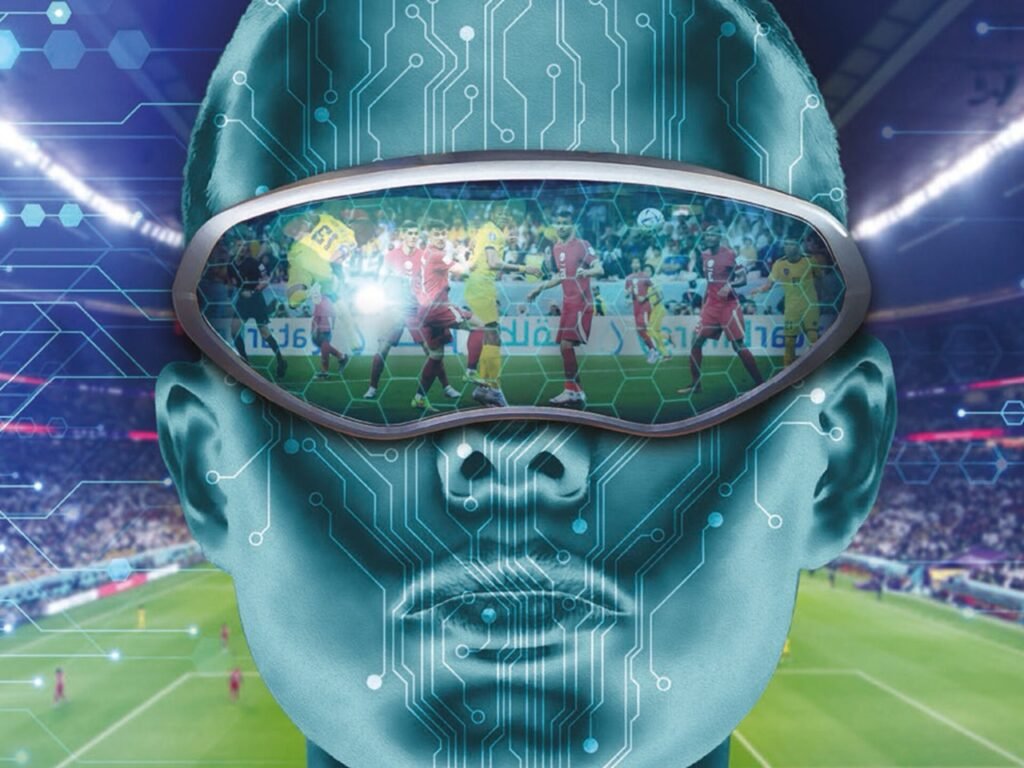Technology is rapidly changing how we watch sports, and by 2030, the experience will be even more thrilling. Innovations like virtual reality and artificial intelligence will allow fans to feel like they are right in the middle of the action from the comfort of their homes.
Emerging technologies will offer personalized viewing options, catering to individual preferences and enhancing engagement.
These advancements promise to make sports more interactive and accessible, transforming how we experience everything from major tournaments to local games.
Emerging Role of Virtual Reality in Sports Viewing
Virtual reality (VR) is making a huge impact on how fans watch sports. This technology lets viewers feel as if they are sitting in the stadium, bringing them closer to the action than ever before.
With VR, fans can enjoy 360-degree views, providing a dynamic way to see every play and cheer along with the crowd.
Major tech companies are investing in innovative VR solutions, such as headsets and apps, to make this immersive experience accessible and easy to use.
As VR continues to grow, sports fans can expect even more exciting and interactive ways to enjoy their favorite games.
Artificial Intelligence: Personalizing Sports Broadcasts
Artificial Intelligence (AI) is changing how sports are presented on TV and online. With AI, broadcasts can be made just for you, focusing on what you like best.
Imagine watching your favorite team’s highlights while getting insights about players that interest you the most. AI can analyze tons of data quickly, showing stats and trends that matter to individual fans.
For instance, some sports channels use AI to show real-time game stats and suggest similar games you might enjoy.
These personalized features make watching sports a more engaging experience tailored to each viewer’s tastes.
Interactive Features and Fan Engagement
Interactive features are changing the way we watch sports. Thanks to technology, fans can now get real-time statistics right on their screens.
This allows viewers to see team scores and player stats as the game is happening, making it feel like having a sports analyst next to you on the couch—especially useful for those following FanDuel live bets!
Another cool feature is interactive polls. These let fans vote on game outcomes or other fun questions during the match. Social media plays a big part too, allowing fans to chat and share their thoughts with others instantly.
As technology keeps evolving, these interactive options will make watching sports even more fun and engaging.
Accessibility and Global Reach of Technologies
Technology is making it easier for people all around the world to enjoy sports. Thanks to streaming services and sports apps, fans from different countries can watch their favorite games live, no matter where they are. These platforms help break down barriers that once limited access to local and international matches.
Now, even small communities can cheer on their hometown teams while also following big international tournaments.
With translation features and localized content, sports technology connects people globally, fostering a sense of unity and shared excitement.
As innovation continues, access to sports will become even more inclusive, allowing fans everywhere to stay connected and engaged.
The Future of Analytics in Sports
Sports analytics is about using data to understand games better and help teams win. By 2030, we’ll see huge improvements in this area, thanks to smart technology.
Teams will be able to gather tons of information from games, like how fast a player runs or how well they shoot. This data will help coaches make better decisions during games and improve player skills during practice.
For example, advanced analytics might track a soccer player’s movements to find the best positions to score goals.
Fans will also benefit since these insights can appear during broadcasts or on their devices, providing them with a more in-depth understanding of what’s happening on the field. This means everyone, from the players to the fans, will have a richer sports experience.
The Takeaway
By 2030, watching sports will be transformed by incredible technology. Virtual reality will let fans feel like they are in the stadium, making the games more immersive and exciting. Artificial intelligence will personalize broadcasts, showing stats and highlights that match individual preferences.
Interactive features, such as real-time statistics and social media sharing, will engage fans like never before. Technology will also break down global barriers, allowing people everywhere to enjoy their favorite sports with ease.
With smarter analytics, teams will perform better, and fans will gain deeper insights into the games. As technology evolves, sports viewing will become more thrilling and inclusive, offering an amazing experience for everyone involved.
